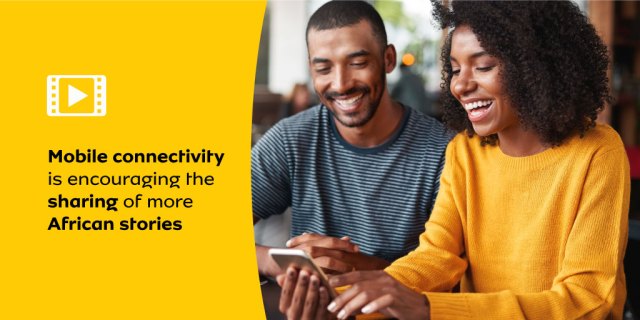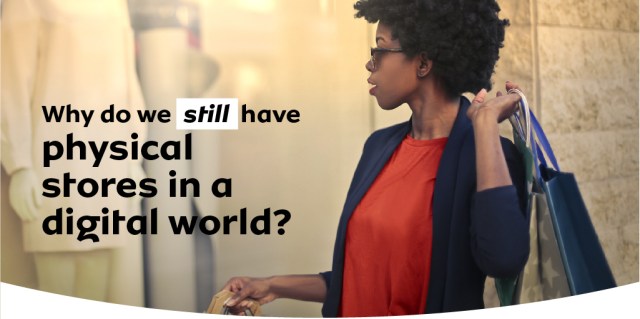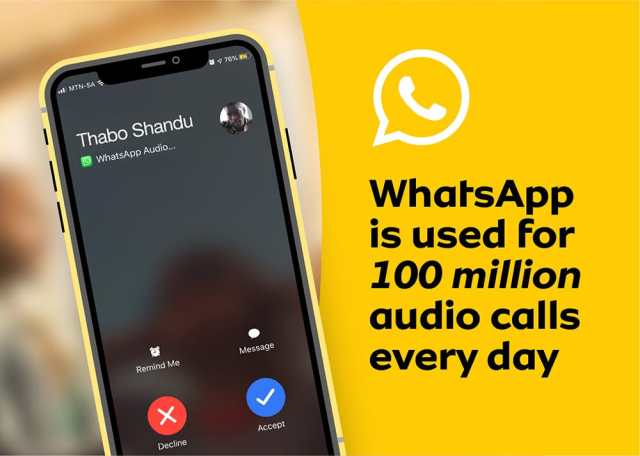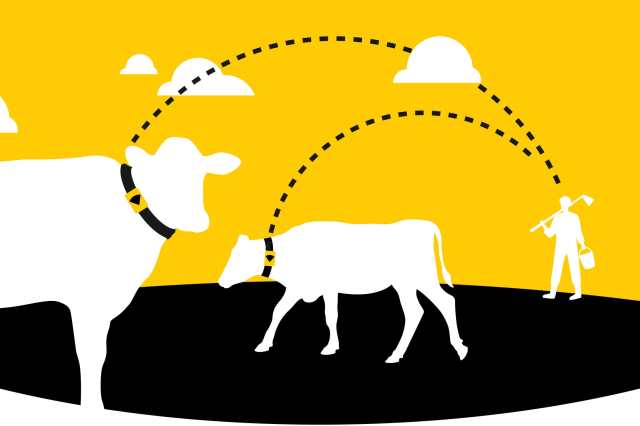
- Home
- About Us
- Sustainability
- Investors
- News
- People & Culture
-
Regions
An MTN Group delegation led by President and Chief Executive Officer Ralph Mupita has concluded a visit to the WECA region, where meetings were held with key stakeholders in Cameroon, Benin and Ghana.
The visit is in line with MTN’s commitment to open and regular dialogue with local authorities in our markets as well as our work to create shared value and engage on developments related to digital and financial inclusion. Among other members of the delegation were MTN Group Senior Vice President Markets Ebenezer Asante and Group Chief Fintech Officer Serigne Dioum.

During the visit, the MTN leadership noted the role that the Group updated stakeholders on the role MTN is playing in the development of the digital economy, regulatory developments as well as discussion on nation-state strategies for socio-economic developments in the respective markets.
The visit kicked off in Cameroon, where the Group President and CEO held meetings with several material stakeholders, including the Prime Minister, the Minister of State, the Secretary General of the Presidency of the Republic, and the Head of the Regulatory Board.
He congratulated the Government of Cameroon for hosting AFCON 2021: “AFCON 2021 successfully showcased the football talent of Africa, and demonstrates the importance of football as a unifying force across the continent. MTN has been increasing its involvement in football, with new sponsorships in Nigeria and Cameroon in recent times.”
Mupita was happy to see the good progress made on key regulatory matters in Cameroon, and expressed gratitude to the country’s authorities for their support.
In Benin, Mupita met the Minister of Economy and Finance, Senior Minister of State, and the President of the Regulatory Board ARCEP and his cabinet. He congratulated the government on the country’s economic growth as well as Benin’s progress in securing the return of historic cultural artefacts.
MTN is invested in promoting Benin and showcasing its rich culture through the campaign, #LeBéninQueJ’aime. At the Ministry of Health, Mupita announced MTN’s financing of a shipment of COVID-19 vaccines to Benin.
Mupita spoke about the Government Action Programme (PAG) particularly as it relates to the enhanced efforts towards access, and digital and financial inclusion, which aligns with MTN’s belief that everyone deserves the benefits of a modern connected life.
On the last leg of his tour, Mupita engaged with key stakeholders in Ghana. These included meetings with the Minister of Communications and Digitalisation and the Board Chairman and Director General of the NCA to reiterate MTN’s support for the further development of the Ghanaian telecommunications sector and Ghana’s broader digital economy plan.
The new policy is in line with the changing nature work accelerated by Covid-19.
MTN Group is pleased to announce the introduction of Anywhere, Anytime Flexibility, a new Group Policy that encourages time and place flexibility. Under the auspices of the Group’s future focussed “Live Inspired” employee value proposition that was introduced in 2021, Anywhere, Anytime Flexibility aims to better reflect the changing nature of the way we work. The policy enables qualifying employees with Anytime flexibility which relates to usage of business hours and Anywhere flexibility which relates to usage of workspaces.

Eligible employees have the option to opt-in for flexible work time and/or place of work, for specified durations during the week or month. This model has been built on the premise of creating a hybrid work environment which activates the benefits of working, both in a company structured and personal-choice environment.
Paul Norman, MTN Group Chief Human Resources Officer said, “Our goal is to create a happy and inspiring work environment for our employees. To this end, we aim to create a fair and inclusive culture which balances diverse personal choices and work priorities. Anywhere, Anytime Flexibility creates room for our employees to exercise the responsible choice of workplace and time to better balance work and life. This policy will also enable us to retain and recruit talented employees.”
The policy will be implemented in each MTN Group market in line with local laws and regulations. Importantly, the health and safety of our employees remains a priority, therefore the implementation of the policy will depend on the Covid-19 risk-adjusted health and safety clearance in these markets.
The new policy is in line with the changing nature work accelerated by Covid-19.
MTN Group is pleased to announce the introduction of Anywhere, Anytime Flexibility, a new Group Policy that encourages time and place flexibility. Under the auspices of the Group’s future focussed “Live Inspired” employee value proposition that was introduced in 2021, Anywhere, Anytime Flexibility aims to better reflect the changing nature of the way we work. The policy enables qualifying employees with Anytime flexibility which relates to usage of business hours and Anywhere flexibility which relates to usage of workspaces.

Eligible employees have the option to opt-in for flexible work time and/or place of work, for specified durations during the week or month. This model has been built on the premise of creating a hybrid work environment which activates the benefits of working, both in a company structured and personal-choice environment.
Paul Norman, MTN Group Chief Human Resources Officer said, “Our goal is to create a happy and inspiring work environment for our employees. To this end, we aim to create a fair and inclusive culture which balances diverse personal choices and work priorities. Anywhere, Anytime Flexibility creates room for our employees to exercise the responsible choice of workplace and time to better balance work and life. This policy will also enable us to retain and recruit talented employees.”
The policy will be implemented in each MTN Group market in line with local laws and regulations. Importantly, the health and safety of our employees remains a priority, therefore the implementation of the policy will depend on the Covid-19 risk-adjusted health and safety clearance in these markets.
The leadership of the MTN Group kickstarted the year with our two-day annual virtual Global Leadership Gathering. The gathering provides an opportunity for us to reflect on the progress we have made to deliver on our ambitions, to recalibrate where necessary, and renew our commitment to lead digital solutions for Africa’s progress.
A future-fit business thrives when it can efficiently run world-class operations, adapt, and transform with the changing times, and constantly reinvent itself to remain relevant and sustainable. MTN has a tremendous responsibility to drive digital and financial inclusion in the communities we operate in. We have challenged ourselves to be bold and seize the opportunity to transform Africa’s future.
MTN Group President and CEO, Ralph Mupita, said: “MTN has a vision of providing leading digital solutions to support Africa’s progress, and we took very meaningful steps in realising this vision. The work we are doing is important for the progress of the communities we live and operate in. If Africa is to economically ‘leap-frog’, while delivering the benefits of a modern connected life to its people, MTN would have played a significant role in that progress.”

2021 achievements
It is important to highlight a few things as we reflect on the accolades received and the many accomplishments achieved in the previous year.
MTN started 2021 by stepping forward as the first private sector company to work with the African Union and contribute to securing much-needed vaccines for the African continent.
We have been recognised as one of the best companies to work for globally, following inclusion in the 2021 Forbes list of World’s Best Employers, while Fortune honoured the Group in its list of companies Changing the World.
The work we are doing around reducing our carbon emissions, driving financial inclusion, reducing the cost to communicate, improving diversity in the workplace and digital human rights has been acknowledged by international ratings agencies such as the FTSE and Sustainalytics.
We have retained our Net Promoter Score leadership positions in 15 markets, which is a clear indicator of success and how we serve our customers. To add to this, our share price has soared, up 184% when measured from the start to end of the year.
Progress on Ambition 2025
Our Ambition 2025 Strategy is focused on driving growth through building the largest and most valuable platform business with a clear focus on Africa. To this extent, we are reinventing ourselves for a sustainable future to the benefit of our customers.
According to Mupita: “The contribution of MTNers in the progress the company made, was achieved through a most challenging time, and I know you all dug deep and tapped into individual and collective reservoirs of strength, grit, and determination.”
“Our vital behaviours, values and culture provided us with a firm foundation of service, excellence and high-performance. We are well on the way to deliver on our strategic intents, as defined by our Ambition 2025 Strategy and the commitments we have made to our stakeholders.”
The successful execution of our Ambition 2025 Strategy will be defined by the operating structure and leadership team driving that strategy.
Operating structure and leadership changes
To ensure the Group is structured in a manner that drives delivery, we announced a new leadership structure and team in December 2021. In line with Ambition 2025’s strategic priorities, the Group has welcomed the following individuals to the ExCo team:
Several changes were introduced to MTN’s operating structure and existing ExCo members have taken on new roles with expanded responsibilities. A Markets cluster was created, combining West and Central Africa (WECA), South and East Africa (SEA) and Middle East and North Africa (MENA) under one leadership. Ebenezer Asante is assuming the new role of Senior Vice President (SVP) of Markets and part of his focus will be to ensure seamless execution of the structural separation of the fintech and infraco assets within the Markets portfolio.
A decision was made to separate digital from the fintech priorities to enhance the capacity to accelerate the growth of MTN’s fintech and other platforms. In order to remain the leader in delivering financial inclusion in Africa, we need focus, agility, and pace in fintech. With the simplified structure under the leadership of Serigne Dioum as Group Chief Fintech Officer, we are set to drive the business forward at a faster pace.
MTN Group COO Jens Schulte-Bockum will drive an acceleration of digital, infraco, enterprise services, network as a service and Chenosis platforms. Jens and Serigne will work together closely to ensure strategic coherence and execution of both fintech and Africa’s SuperApp, ayoba.
These appointments illustrate our diversity of nationalities and bench strength of a team that is highly experienced and well-positioned to take the business forward as we deliver on our ambitions for growth and delivering value. The newly appointed Executive Committee leading MTN on this journey officially started in their roles on 1 February 2022.
We would also like to take this opportunity to thank Felleng and Godfrey who have made significant contributions to the Group Exco, and the progress we have seen in MTN over the last 5 years. We wish them well in their respective futures.
The full Executive Committee and their profiles can be seen at https://mtn-com-develop.go-vip.net/who-we-are/leadership/executive-committee/
From drawings on the walls of caves, to words on the pages of a book, to scenes played out on stages and screens across the world. Every community in the world has stories to share with the intention of teaching, informing or entertaining.
The digital world has made a big impact on the way we tell stories today. We tell stories in short form, in long-form, in audio form, visual form, written form, or all forms mixed into one. We tell stories for screens as big as billboards, or as small as smartphones. Our stories have the potential to reach beyond the eyes and ears of those around us, crossing borders and oceans to find a global audience. Stories can be created and published by anyone with an idea and an internet connection, giving us more variety and more content than traditional media ever could. In Africa, stories are in abundance, and the audience is rapt.
Considering that in 2018, the GSMA reported 774 million mobile SIM connections in sub-Saharan Africa, it comes as no surprise that more people on the continent are watching video content on their mobile devices than on their televisions. While a lot of that content is found on the world’s largest social media platforms – Facebook and YouTube – local video platforms are becoming popular too. MTN Shortz is one example of a short-form video platform where African content creators are publishing original content.

The streaming of local music is also booming on the continent. Whether fans are signing up on Spotify or looking for up-and-coming artists on local platforms like Boomplay, Africa is dancing to the beat of relevant music. Streaming is so popular that millions of African subscribers are engaging with rich media services on MTN’s platforms alone.
Other forms of content, including the news, audiobooks, even games and daily jokes are becoming more accessible to mobile subscribers in Africa. In every country where MTN offers rich media services, the content featured on the MTN Play channels is high in volume and unique to each region. One glance at the content catalogues, and it becomes clear that Africa is teeming with creatives who have a story to tell. The millions of Africans who subscribe to content services to ensure these stories reach their mobile phones make it clear that we want to hear and read and see more.
As more platforms with African roots appear in the digital world, the collective voice of the continent’s creative population becomes louder. Our audience is larger and closer than ever before, and mobile connectivity is encouraging the sharing of more African stories.
It is about planning for the unexpected, the inevitable and the future. Since Mobile Money arrived on the continent, people in Africa now have access to additional financial services including insurance. As is the case with most digital services, insurance in Africa has taken a mobile route.
Insurance companies are very aware that technology should be part of the foundation of their business models. Mobile insurance has been established as the most efficient way to reach the African market. PriceWaterhouseCoopers compiled a report entitled Ready and Willing: African Insurance Industry Poised for Growth which highlights technology as a key trend that impacts insurance. The report notes that mobile phones and Mobile Money offer a significant opportunity for the insurance market in African countries.
Traditional insurance companies are therefore partnering with technology companies and innovators to ensure the right policies and products reach Mobile Money users. MTN Mobile Money users in Ghana and Uganda, for example, are able to take out insurance policies with a company called aYo; the mobile microinsurance service provider is a joint venture between MMI Holdings and MTN. The financial products are underwritten by Metropolitan Life Insurance.
Since aYo launched, more than 5.3 million policies have been issued to MTN Mobile Money users.
Now that insurance services are more easily available, people in Africa are ready and willing to take out a policy. The PwC report describes insurance penetration in Africa as among the lowest in the world, but now that insurance is mobile, this reality is set to change.
aYo offers MTN Mobile Money users and subscribers hospital cover and life insurance. Users dial a USSD code in order to begin the registration process, and premiums are
deducted through airtime or mobile money. Cover can be increased at any time and bonus cover can be earned by getting friends and family members to sign up. Policyholders are also prompted to add the details of caretakers – the person who will handle financial affairs and other details in the event of death or hospitalization. Beneficiaries can be added via USSD as well, so the insurers can pay funds out correctly.
An article in The Africa Report describes Ghana as among the fastest-growing Mobile Money markets in sub-Saharan Africa, and the country for other territories like Nigeria to look to when it comes to insurance penetration. Regulators and Ghanaian government have encouraged an increase in mobile insurance products for citizens over the years, and the country’s central bank reworked the regulatory framework for mobile money to allow operators to run services through existing subsidiaries. Ghana is providing an example for the rest of Africa which showcases how well financial services and mobile technology can work together.
As is the case with most traditional industries, insurance is not immune to disruption. By partnering with innovators and applying a mobile-first approach, insurance companies can successfully penetrate the African market. The population of Africa is, therefore, more likely to take advantage of financial services and plan for a bright future.
With a good connection, a smartphone and a laptop, almost anything is accessible. Working and hosting meetings from home, ordering lunch, taking a break from work to read an article like this, booking a flight or planning a holiday can all be done without actually going anywhere. The digital link to our physical world becomes stronger every time a new solution, a new app, a new feature or update is made available. Why then, do we still venture into the physical world at all? Why are physical stores still open? Why are companies like MTN, who want everyone to enjoy the benefits of a connected world, still opening brick and mortar stores? In Africa, there are a number of reasons.
In Africa, we are Still Connecting
Mobile penetration in sub-Saharan Africa is at an all-time high. The GSMA reported 456 million unique mobile subscribers in 2018 and that number continues to grow every year. As the African population grows, the workforce grows and more people are purchasing phones for the first time. For those who don’t have a phone at all, the obvious place to start is in a physical store. There are more than 5 million formal and informal MTN retail stores across Africa and the Middle East, making it easy for a first-time buyer to access a digital device.
A Digital World Still Requires Hardware
Despite how futuristic any digital solution available today may be, we still require a physical object in the real world to use it. While online unboxing videos are always fun to watch, there is still value in walking into a store, looking at and touching various devices before making a purchasing decision. Upgrading from a feature phone to a smartphone is a big transition for some, so having a friendly (human) face to turn to for help is necessary.

Stores Create Jobs
With more people to serve, comes the need for more physical stores and people to work in them. The retail industry is people-centred and therefore creates a lot of jobs. In areas where trading hours are extended, shop managers and assistants, cashiers and cleaners work in shifts so that balance between personal and work life, and the consumer demand, is optimized. Without brick and mortar stores for people to visit, the unemployment challenge would become even bigger.
A Human Link to a Digital World
Even if you aren’t a first-time buyer, a friendly face to help navigate the digital world is essential. For people who aren’t considered digital natives with an innate understanding of how their devices and programs work, having a real person to help troubleshoot or discover new tricks and tips can be the difference between seeing the digital world as an overwhelming or awe-inspiring place.
For now, in Africa, enjoying the benefits of a modern connected life begins in the physical world.
The world is more connected than it has ever been; more efficient, more convenient, more fun at times. We don’t have to wait to get home to make a phone call or wait to develop the photographs we have taken. We don’t even have to walk around with multiple devices to do multiple things. A big part of our world is in the palms of our hands and we thrive on it. While the convenience, efficiency and fun are welcome, the digital world offers so much more than that. It offers the chance to make meaningful connections.
The 2019 International Telecommunication Union (ITU) focused on a central theme of using digital technologies to transform lives in a positive way. This theme resonates with the way the digital world is impacting the lives of people living in Africa.
Our continent is extremely vast. Cities and rural areas of the same countries are often far from each other, which means that traveling between the two is not always easy. For an African person living in a remote location, making a living often means leaving your hometown and your family behind to find a job in the city. A city where nobody knows you, where everything is different, where it is likely to feel lonely, even in a crowd. The digital world in the palm of such a person’s hand is a connection to home. Gone are the days of hoping that a letter to the family arrived via snail mail, or struggling to send money home to a village where bank accounts are not the norm. Today, all these things can easily be achieved with a smartphone and an internet connection.
MTN provides coverage to cities and rural areas in 17 African countries, and that coverage brings people closer together.

For business owners who want to expand to other markets, the cost of hosting a meeting doesn’t have to include a flight or a long drive. Video and audio calls have become so common across many digital platforms, that it is evolving into the new norm. Facebook reports that 400 million people are making video and audio calls every month, while WhatsApp is used for 100 million audio calls every day. For an entrepreneur who needs to keep costs down but also needs to grow, this technology makes a meaningful impact.
The ITU Forum wants telecommunication companies to consider how we can make connectivity affordable, relevant and fit for purpose so that meaningful connections can be brought to every person in the world. They want “local content in local languages, supported by digital skills, digital education and digital awareness”. We are proud to be able to claim that we as MTN are already doing all of these things.
With 560 million Africans covered, any dream can become a reality.
A quick text to a colleague, an important email from a client, a video call with people across the world – these tasks no longer require office hours. Mobile technology has altered the way we work forever. While we marvel at (or bemoan) our extended workdays, farmers have been doing it for centuries. Neither crops nor livestock are concerned about the numbers on a clock or the public holidays on a calendar. The farmer’s day does not end when the sun sets; because when the sun sets the farmer has to worry about whether his or her livestock is safe and secure, or whether that cow might give birth at midnight, among a range of other concerns. In an innovative world, this is where technology comes in to ease and optimize the workload.
Innovation for farmers comes in the form of cloud-based technology and the Internet of Things. This pillar of Industry 4.0 has led to the creation of smart collars for livestock.
When an animal wears a smart collar, the farmer can track its location and health in real-time.
Rather than wondering whether a predator or a thief is going to get away with an animal in the middle of the night, smart collars minimise the guesswork. If, for example, a predator enters the territory of farm animals, the heart rate of the farm animal will increase and the farmer will be alerted about the distress immediately. Naturally, alerts from the smart collar are sent straight to the farmer’s phone in the event of a potential incident. The ability to prevent rather than react to incidents results in fewer animals lost, and more money saved in the long run.

In countries like South Africa, smart collars are helping to prevent the theft of livestock as well as the ability to identify an animal if it wanders over to a neighbouring farm. The combination of a smart collar, cloud-based management and a user-friendly digital interface also enables farmers to gather data and identify behaviour patterns, which lead to more informed decisions about managing livestock.
Similarly, in Nigeria we launched an animal identification management system to monitor cattle location, send emergency alerts in cases of distress and create grazing areas through solar powered GPS geo-fences.
Smart collars have made an impact on Africa’s rhino poaching problem as well. MTN partnered with IBM, a university in the Netherlands called Wageningen, and a game reserve called Welgevonden to create and deploy smart collars for animals in danger of being poached. Whenever the behaviour of an animal in the game reserve changes (as they do when hunters approach), game rangers receive alerts and are able to act quickly.
With more than 1000 rural sites installed by MTN in Africa, more livestock farmers have the ability to use smart collar solutions. When connectivity becomes the enabler to solve age-old problems, technology becomes so much more valuable than answering a late night email.
If you enjoyed this article, read about how crop farmers are using IoT solutions here.
It doesn’t matter who you are, where you are, or what you do – the need to feed our human bodies is one of life’s great equalizers. Food is something that some of us take for granted, and that others have in such minimal amounts that they can barely stay alive. We have a food problem. According to an organization called Future Agenda, the world will need 60% more calories per day to feed 9 billion people by 2050. And yet the world wastes 2 billion tonnes of food every year. A large portion of that food is wasted at an agricultural level – before it even reaches a factory or your dinner table. If ever we needed a reason to use technology to solve a global problem, this is it.
The UN reports that almost half of the African population relies on agriculture to make a living. Imagine the potential to solve our food problem if we could enable half the African population, 530 million people, to farm more efficiently? It all starts with a connection. When farmers are connected, Internet of Things solutions become a reality.
MTN has over 1000 rural sites, taking us closer to a truly connected continent.
The Internet of Things has become a major contributor to a concept called precision agriculture. The objectives in combining technology with farming include higher yields, reduction of operating costs and an overall increase in efficiency. One example can be found in Kenya. A company called UjuziKilimo installs sensors in farm soil which send data to farmers’ mobile devices. This data includes weather updates which helps farmers decide when to plant seeds in our ever-changing climate, and even information about soil quality. Farmers only need to send a text message to UjuziKilimo for the team to come out and begin with a farm-analysis. And when farmers are connected, they are able to share the data they receive with their neighbours – spreading the knowledge, and amplifying the impact so that everyone is maximizing the potential of their own farms. In South Africa, farmers are also making use of mobile apps to send alerts about pest problems and receive weather updates and other farming related advice.
[vimeo 219679989 w=640 h=360]
A sustainable farm is a successful one which makes a far-reaching impact. More people can be employed in the agriculture sector when farming is efficient, and more food is produced to feed our growing global population.
All of these solutions are only possible because of our natural eagerness to innovate, and the ability to do so with technology and connectivity as a solid foundation. Technology and people truly can be good together – and that’s food for thought!
References:
Global Farmer Network – Rwanda Leadership Honoured
Farmers Weekly – New Smartphone Apps to Help Farmers
Brookings – Foresight Africa 2016